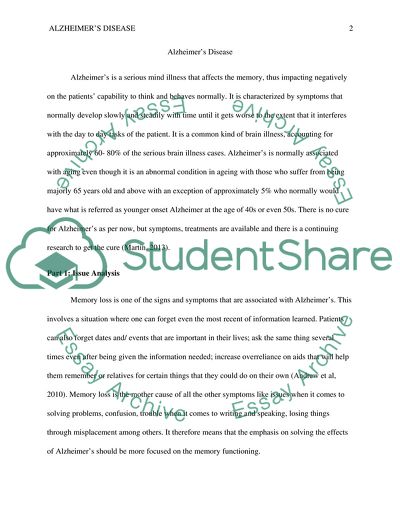Cite this document
(The Issue of Alzheimers Disease and Its Treatment Coursework Example | Topics and Well Written Essays - 1500 words, n.d.)
The Issue of Alzheimers Disease and Its Treatment Coursework Example | Topics and Well Written Essays - 1500 words. https://studentshare.org/health-sciences-medicine/1861632-issue-analysis-alzehimers
The Issue of Alzheimers Disease and Its Treatment Coursework Example | Topics and Well Written Essays - 1500 words. https://studentshare.org/health-sciences-medicine/1861632-issue-analysis-alzehimers
(The Issue of Alzheimers Disease and Its Treatment Coursework Example | Topics and Well Written Essays - 1500 Words)
The Issue of Alzheimers Disease and Its Treatment Coursework Example | Topics and Well Written Essays - 1500 Words. https://studentshare.org/health-sciences-medicine/1861632-issue-analysis-alzehimers.
The Issue of Alzheimers Disease and Its Treatment Coursework Example | Topics and Well Written Essays - 1500 Words. https://studentshare.org/health-sciences-medicine/1861632-issue-analysis-alzehimers.
“The Issue of Alzheimers Disease and Its Treatment Coursework Example | Topics and Well Written Essays - 1500 Words”. https://studentshare.org/health-sciences-medicine/1861632-issue-analysis-alzehimers.


